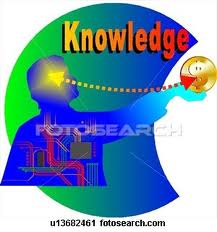My friend seemed not quite convinced yet and he said:” It is easy for anybody to use India as an example but don’t you think it was a special case?’ I told him that it is not a special case and the lesson in India can be applied to other agriculture society as well if it starts with education. I believe the establishment of a high-quality education system can bring significant change in economy of developing country but this increasing importance of knowledge for economic development can also produce inequality between developing and developed countries if no action is taken. Without a good education, the gap will continue to grow larger and it will be difficult to fix. Since knowledge and technology are changing very fast, the key aspect of education should also be focused on lifelong learning to keep people current with changes. The tradition way of providing education as a set of basic knowledge to qualify people for their jobs is obsolete and must be changed to focus on giving people access to an ever-growing knowledge. Primary education should be the key focus because it is the foundation for any advanced development. If student has not mastered the basic skills of reading, writing and arithmetic, it will be hard for them to engage in continued learning as in lifelong learning. Secondary and tertiary education, which builds on the primary level, must also be improved based on a comprehensive plan where students could be given options for education and employment that enable them to contribute to economic growth and development.
Since education is a key component of economic prosperity, education systems must be viewed in the context of the skills needed in industry rather than a basic knowledge dictated by people in academia. Therefore the collaboration between industry and education institutions is essential. In a knowledge society, industry plays an increasing role in determine what is needed and what is not based on their needs. In developed countries, private schools have an important role in the education system because they are in a better position than public schools to develop training for the specific needs of the industry. People often ask why most of the top universities in the U.S are private schools? The simple answer could be they all receive significant fundings from industry because their education programs are tailored to meet the need of the industry. With fundings private schools can hire the best professors, establishes the best research laboratories, creates the best curricula and recruits the best students. In this kind of relationship, industry can require private schools to establish programs to help people become self-motivated lifelong learners in respond to the increasing need in industry for certain skills and knowledge. For better efficiency, many private schools have utilized modern computing and communication technologies to enable students to access specialized knowledge quickly, in a self-reliant manner. This includes the opportunities offered by e-learning in the transfer of knowledge between schools and industry. In this practical collaboration, students can interact with other students in other schools, work on joint projects for industry (Capstone type of projects), students can also learn at the workplace through a wide range of internships, and university-industry co-operation joint researches. However, this kind of approach will not work if students don’t feel a sense of urgency or a need to continue learning as opposed to just receive academic degrees. I think a lot of work needs to be done in raising awareness among students and society about how to become a knowledge society and the benefits of lifelong learning.
My friend seemed to agree so he asked: “In that case, what would you suggest?” I told him that we need to invest more in education and training and adjust the education systems to meet the needs of the industry and make lifelong learning a key aspect of education so people can help growing the economy and make it a knowledge economy.
————————————————————-
Prof. John Vu, Carnegie Mellon University
————————————————————-
Source: SEGVN






